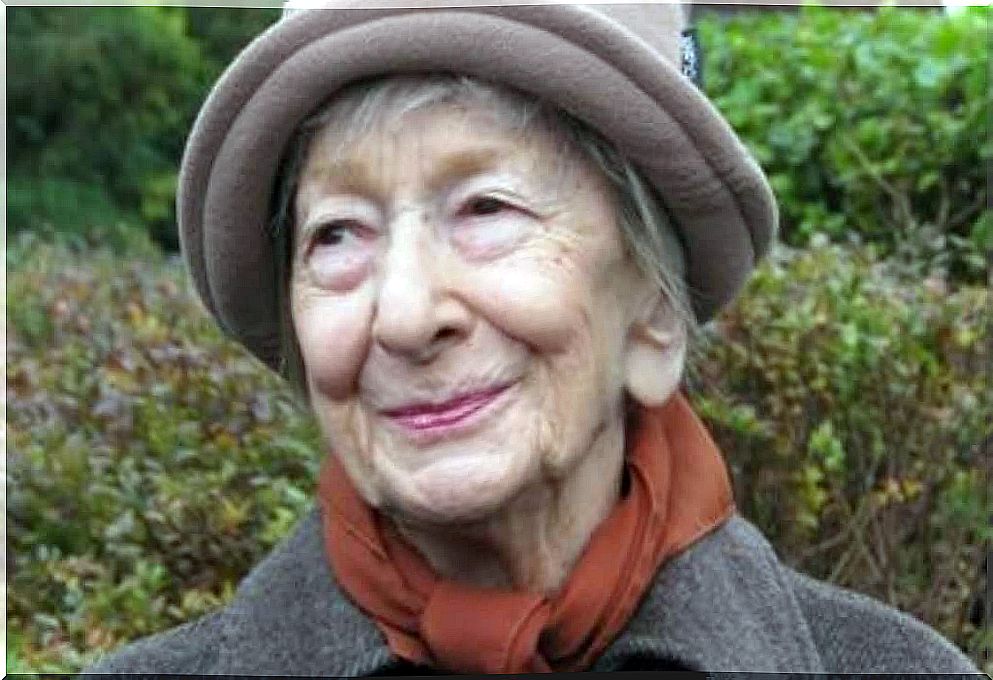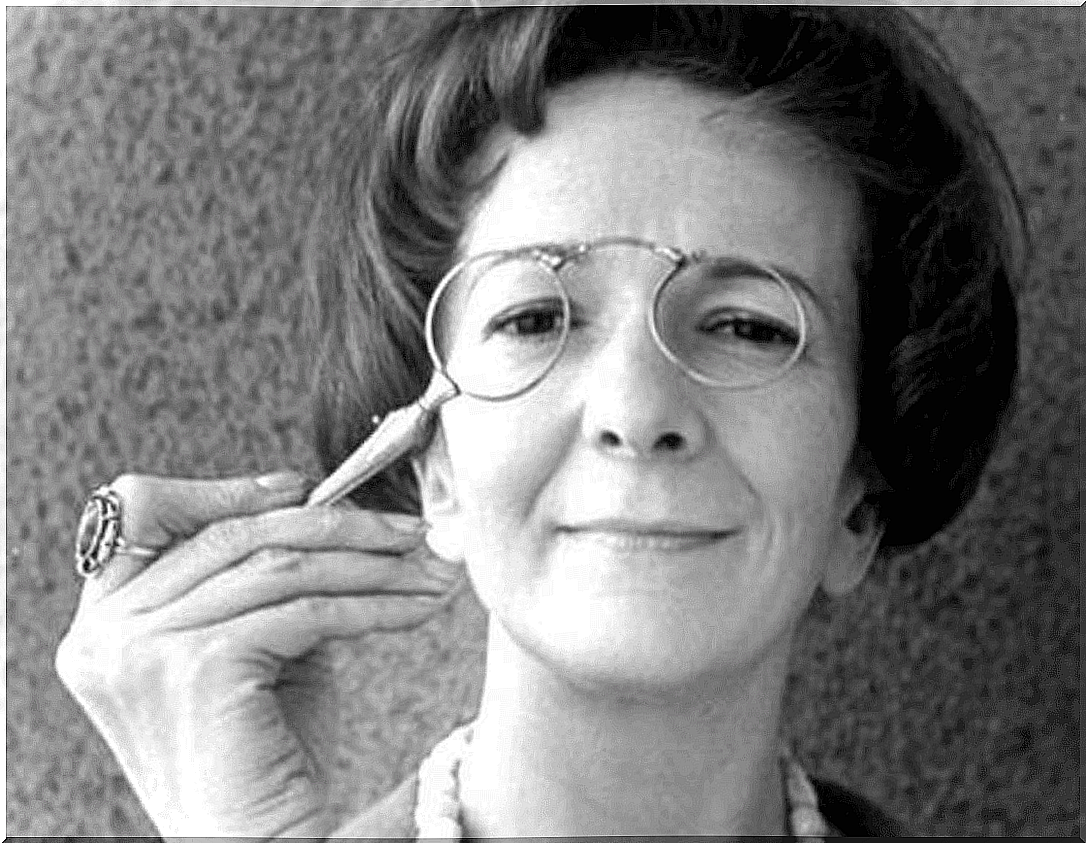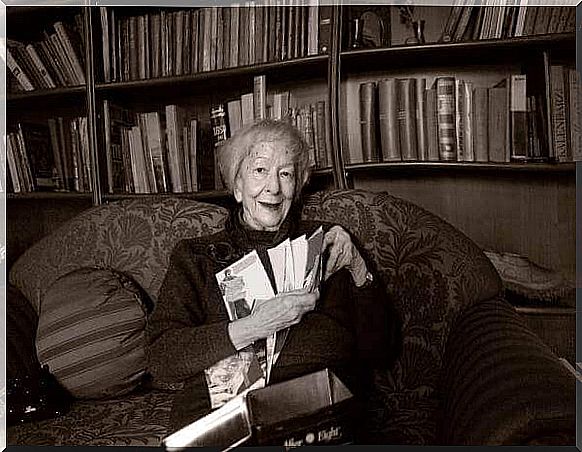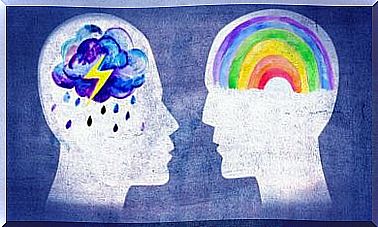Wislawa Szymborska: Biography And Works

Wislawa Szymborska was a Polish poet, essayist and translator. Author of more than 15 works of poetry, she has also illustrated and edited.
During her youth, Wislawa was forced to study clandestinely in Nazi-occupied Poland. After the war, the poet became a defender of communism. However, throughout her life the disenchantment would increase and she ended up being disappointed with this ideology. After his first two books, Wislawa rejects the Communist leader Stalin.
Winner of the Nobel Prize for Literature, her life was not only a literary creation. Wislawa also gained great popularity thanks to his Polish translations of universal masterpieces.
Childhood
In fact, Wislawa was Szymborska’s second name. Her full name was María Wislawa Anna
The atmosphere at the house was quite intellectual; everyone read a lot and they all talked about books. Wislawa always showed her poems to her father and, if he liked what she wrote, he gave her a play as a reward.
After a second move in 1931, Wislawa enrolled in a convent school in Krakow, but was unable to complete her studies there. During her youth, the poet suffered personally from the premature death of her father and socially from the German occupation of Poland.

The impact of WWII
At the start of World War II, Germany occupied Poland as early as 1940. This event made it impossible for Polish citizens to attend public schools.
The poet had been strongly linked to the ancient royal city under Wawel Castle. She continued her studies at an underground school under Wawel Castle.
It should be noted that during the 20th century, Wawel Castle was the residence of the President of Poland after the invasion of the nation. Krakow became the seat of the general government of Germany and Wawel later became the residence of Nazi Governor General Hans Frank.
After years of underground training, Wislawa Szymborska was able to finish high school in 1941.
In 1943, she became a railway worker and managed to escape deportation to Germany for forced labor. It was around this time that she succeeded in creating illustrations for an English textbook and began to write stories and poems.
When the war ended in 1945, enrolled at the Jagiellonian University in Krakow to study Polish literature. Later she switched to sociology. However, she had to drop out of school in 1948 without graduating due to financial constraints.
Wislawa Szymborska’s literary beginnings
In March 1945, Wislawa Szymborska made his debut in a Krakow newspaper called Dziennik Polski with his poem Szukam slowa ( In Search of the Word ). Soon many more poems began to appear in various local newspapers and media.
After leaving school in 1948, she took up the post of secretary in a bi-weekly educational magazine. At the same time, she also worked as an illustrator for the magazine and continued to write poetry. In 1949, she completed her first collection of poems.
Like most intellectuals of the time, Szymborska’s early works reflect the socialist philosophy that was the norm in Poland at the time. His first collection, Dlatego zyjemy ( This Why We Live , 1952), contains many poems that echoed his political ideology.
In the 1950s, Szymborska became a member of the Polish Workers’ Party. His next collection, Pytania zadawane sobie ( Questions to oneself ), published in 1954, echoed his socialist sentiment.
However, Szymborska was disappointed with Communist ideology, and her third collection of poems, Wolanie do Yet ( Call of the Yeti ), published in 1957, reveals her disappointment and the changes in her thinking. The poems in this collection express his dissatisfaction with Communism, in particular Stalinism.
She shows her deep concern for humanity and goes so far as to compare the Soviet leader Stalin with an abominable snowman in a poem. By these actions, she severed all ties with the Polish Workers’ Party.
The author ended up rejecting her first two works, before 1957. She saw them as the wake of socialist realism, which she had already given up and with which the rest of her life would be very critical.
Wislawa Szymborska: work
Throughout his life, Wislawa Szymborska wrote over fifteen books of poetry and prose. However, not only was she a famous poet, but she gained considerable reputation as a critic and translator through her book reviews and translations of French poetry.
From 1968 she ran her own column of book reviews called Lektury Nadobowiazkowe . Most of these essays were later compiled and published in book form.
In addition to the Nobel Prize for Literature in 1996, Szymborska received many other awards. Among them: the Prize of the Polish Ministry of Culture (1963), the Goethe Prize (1991), the Herder Prize (1995) and the PEN Prize of the Polish Club (1996), etc.
In 1995, the Adama Mickiewicz University in Poznan awarded him the title of Doctor Honoris Causa in Letters.
In 2011, Wislawa Szymborska was awarded the Orla Bialego Order or the Order of the White Eagle. It should be added that this is the highest honor awarded to an individual by the Polish Government.

Personal life and legacy
Wislawa Szymborska married the poet Adam Wlodek in 1948. His house at 22 Krupnicza Street in Krakow became a nerve center for writers of his time. Among them is the famous writer Czeslaw Milosz.
The couple separated in 1954, although they remained close friends until their death. They did not have children.
Szymborska became romantically involved with writer Kornel Filipowicz fifteen years later. They never married and have always lived apart.
Wislawa Szymborska died peacefully while sleeping on February 1, 2012 at her home in Krakow. She was 88 at the time and was working on a new poem.
Today, Szymborska’s poems have been included in some school curricula. She became an internationally renowned poet and her work has been translated into different languages such as English, French and German; there are also many translations in Arabic, Hebrew, Japanese and even Chinese.
His poems are particularly remarkable for their language and precision. At the same time, his poetic work exudes a sense of ironic detachment.
Although Polish history, from WWII to Stalinism, clearly influences her poetry, Wislawa Szymborska was also a deeply personal poet, who explored the great truths that exist in everyday and common things. His poetry is a reflection of the interests that have marked his life and the way in which it, like his work, has evolved and taken different paths over time.









